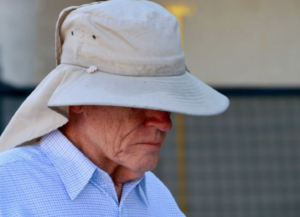
Imagine being wrongfully imprisoned for 19 years, so when you emerge from prison life into the light of freedom, you’re an old man – your youth was stolen away from you?
In the case of David Harold Eastman, which is massively in the Australian news right now, his bid to sue the ACT government for wrongful imprisonment is well and truly back on.
An ACT Supreme Court jury on Thursday returned a not guilty verdict on whether Mr Eastman had murdered senior police officer Colin Winchester in the driveway of his home in January, 1989.
Compensation lawyers have speculated Mr Eastman could be eligible for up to $20 million in compensation if he were to win a payout via the courts.
The ACT government could, however, settle the matter out of court and provide Mr Eastman with an ex gratia payment.
Governments can make ex gratia payment to compensate a person without having to admit liability.
Mr Eastman served 18 years, 11 months behind bars for the murder after being found guilty at trial in 1995.
A 2014 inquiry, however, found the trial had been a miscarriage of justice and the full bench of the Supreme Court quashed the conviction.
Mr Eastman’s retrial for the murder began in June and ended with a verdict of not guilty on Thursday.
The civil case, launched in 2015, had been stayed pending the outcome of the criminal proceedings.
Mr Eastman filed an ACT Supreme Court lawsuit alleging the territory is liable to pay him compensation under two sections of the Human Rights Act.
Court papers, filed by Mr Eastman’s lawyers, Ken Cush and Associates at the time, said the civil claim came as a result of their client’s unlawful detention and wrongful conviction.
It alleged the former Treasury official’s imprisonment caused him deprivation of liberty, loss of income, to suffer mental harm, damage to his reputation, and he had expended legal cost and time in fighting to reverse his conviction.
He has also asked for interest and costs.
“Mr Eastman’s imprisonment and detention was unlawful by reason that the deprivation of his liberty was not on grounds or in accordance with procedures established by law,” court documents said.
The government, in its defence, argued Mr Eastman’s detention had been lawful and the Human Rights Act did not give rise to any cause of action.
Mr Eastman served more time than the high profile compensation case of Perth man Andrew Mallard, who received a $3.25 million payout in 2009 after spending 12 years behind bars for a murder he was proven to have not committed.
Mr Mallard was cleared in 2006 and received an ex gratia payment of $200,000 upon his release. At the time various Perth lawyers agreed his overall payment was about half of what they had been expecting.
Alice Lynne “Lindy” Chamberlain received $1.3 million in compensation in 1992 after she had been wrongly convicted of killing her nine-week-old daughter, Azaria, at Uluru in 1980.
She spent about three years behind bars before her sentence was overturned.
A coronial inquest in 2012 finally confirmed what many had said for years – that a dingo had killed the child.













